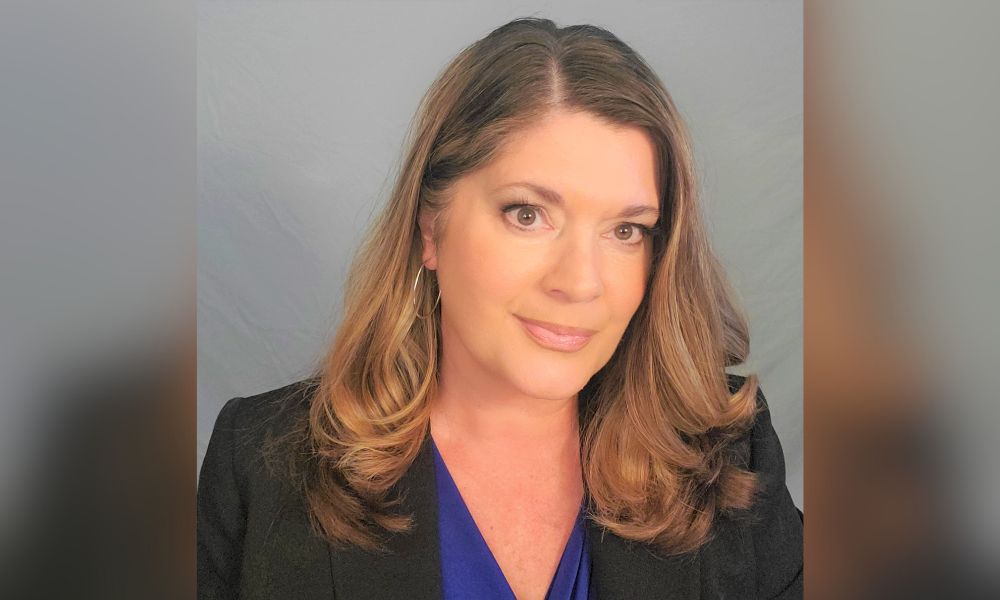
HR chief at famed Recording Academy talks inclusivity and finding top talent to fit its culture

The Grammys is watched by music fans across the globe, which brings with it an enviable profile but also intense scrutiny. It’s a double-edged sword. On one hand, it has provided a stage to celebrate acclaimed artists – with the viewing figures to match – but, on the other, it has faced accusation of racial bias around its voting process.
Fortunately, it has an HR professional born to the role. Unlike many of the colleagues she’s met along the way who stumbled into the field, Shonda Grant chose a career in HR right from the start when attending the University of Nebraska 25 years ago.
Now, Grant is Chief People and Culture Officer with the Recording Academy of the United States—which presents the famed Grammy Awards. Like any organization, diversity, equity, and inclusion (DEI) are essential values but given its profile and controversies, the focus on these values has become even more pronounced.
Global superstars like Drake, The Weeknd, and Nicki Minaj have previously slammed the Grammys’ approach to inclusion and its treatment of Black artists, going so far as to boycott the awards show, in some cases. “I don't need to go into all of the details,” Grant said. “I'm sure you can Google and look at what transpired.”
|
SHONDA GRANT: CAREER SPOTLIGHT |
|---|
| More than 22 years at the Recording Academy |
| Has held six HR positions at the Academy, working her way up to chief people and culture officer. |
| Responsible for nationwide HR activities for The Recording Academy, the Latin Recording Academy, the MusiCares Foundation, the GRAMMY Museum, and the Latin GRAMMY Cultural Foundation. |
| Previously worked for Digital Lighthouse |
| Graduated from University of Nebraska |
In 2020, the Recording Academy CEO Harvey Mason jr. was appointed the Academy’s interim President/CEO and Valeisha Butterfield Jones as the Academy’s first DEI Officer. Mason was later officially appointed CEO in 2021. Grant pointed out that the Academy needed someone at these top roles who could take a collaborative and educational approach to DE&I and ensure that it be integrated into all aspects of the organization.
“We knew that if we brought in the right individual in DE&I, it would really make its way through most of what we did,” Grant said of Mason Jr. “But the reality is that it’s made its way through everything.”
Since the appointment of Mason Jr., the Recording Academy has made significant progress in DEI, from its educational programs to its partnership deals. The Academy has even implemented an inclusion rider for its shows, resulting in significant DEI victories. “We are thrilled to say we felt we got it right,” Grant added.
DEI is not the only challenge that Mason Jr., Grant, and the Recording Academy have turned into opportunities. Grant and her relatively small team have had to develop innovative recruitment strategies to source top candidates. While the compensation at the non-profit is unable to compete with the likes of for-profit corporations like Amazon and Netflix, the Recording Academy does carry an undeniable reputation and cultural significance that make it a major draw for top talent interested in working in the music industry.
Make no mistake, the people who work for the Recording Academy are passionate about music. And they are all mission driven, Grant points out. The recording Academy’s mission is centred on music education and advocacy, and its health and human services work through its philanthropic affiliate, MusicCares.
“Finding people who are mission driven is key to ensuring that they will stay with the organization for the long term,” she said, adding that this common purpose and passion is what sets the Academy’s HR team apart from more traditional, corporate HR teams.

Shonda Grant, chief people and culture officer at the Recording Academy of the United States
Despite the high profile of the Recording Academy and the Grammys, Grant still runs into the same HR issues that plague the industry in all fields—expansion. After the COVID-19 pandemic caused many organizations to downsize and lay off employees, the subsequent Great Resignation left a talent gap that many companies are now trying to fill. Tech has helped make this process more efficient, but Grant believes nothing can replace the human sixth sense when it comes to deciding whether someone will be a good cultural fit.
“We are looking to expand our footprint globally,” Grant said, “and our greatest challenges, like all organizations right now, is finding the talent that we are looking for.”
She added: “We need to follow our human gut instinct when it comes to building the team which, by the way, is often right. We’re using [HR tech] to make our jobs a little bit easier and free up that bandwidth. At the end of the day, it’s still got to be a human decision.”
|
THE GRAMMYS: FUN FACTS |
|---|
| First Grammy Awards ceremony took place on May 4, 1959. |
| It features a wide range of categories, including pop, rock, country, hip-hop, R&B, jazz, and classical. |
| The "Big Four" categories at the Grammys are Record of the Year, Album of the Year, Song of the Year, and Best New Artist. |
| For the 2023 ceremony, there 91 categories. |
| Beyoncé holds the record for the most Grammy wins with 32. U2, with 22, has the most number of wins by group. |